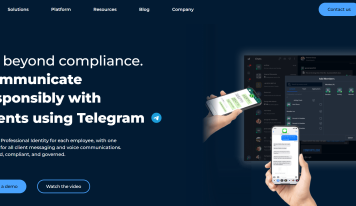Where is my Mobile Data?
An overwhelming amount of wireless, communications and tech news is the best way to describe the last few weeks. Perhaps one of the most important nuggets is a catastrophic loss of T-Mobile USA Sidekick customer data and if you have one of these nifty little gadgets, be aware the wireless carrier asks that you not reset it. This issue highlights the problems with SaaS and cloud-based services. Google, thought to be the gold standard of hosted data companies has suffered outages and so have Amazon and Salesforce.com. The one constant here is cloud-based services seem to be as error-prone as CPE equipment which makes sense. If it can better, it will gain a larger share of the data center pie.
Android is Everywhere
But for Google, cloud computing is just one of many projects they have their hands in. Last week at the CTIA show in San Diego I witnessed Google Android everywhere… Android has even caused Verizon to start getting along with the search leader. And you wondered why that Nobel Peace Prize was awarded.  At the same time, Microsoft rolled out Windows Mobile 6.5 and this platform is just not cutting it as it is tired and old. Once upon a time I marveled at this OS but then again I did the same with my Commodore 64 back in 1982. Yes it’s getting better, but I used it myself and wasn’t too impressed. One thing for sure is the web browsing on an iPhone 3GS seems to be far superior to either competitive mobile OS.
At the same time, Microsoft rolled out Windows Mobile 6.5 and this platform is just not cutting it as it is tired and old. Once upon a time I marveled at this OS but then again I did the same with my Commodore 64 back in 1982. Yes it’s getting better, but I used it myself and wasn’t too impressed. One thing for sure is the web browsing on an iPhone 3GS seems to be far superior to either competitive mobile OS.
Will a Mobile Search for “Microsoft” Show Results?
The scary part of this equation for Microsoft has to be that they are in danger of losing the mobile device OS race altogether. And this is where Google and Microsoft will tell you the future of search is. In fact, Google is looking to tightly couple search with mobility in a way which will offset their inability to effectively compete with the sheer slickness and elegance of the iPhone.
AT&T Hates Google and Apple Learns From Decades of Defeat
Two points worth mentioning are that AT&T may be distancing itself from Google (hint, they aren’t friends) and moreover, Android has some challenges ahead of it – primarily figuring out what Android really means in a world where open source platforms are able to grow in various and competing directions quite rapidly. The problem of course is for users and developers looking to easily roll out apps across a broad range of platforms which are all supposed to be equivalent. In reality they aren’t and developers have to deal with individual phone models when programming for Android. The process is not as easy as it should be. Finally the concept of Apple owning the hardware shows how this can be superior to the open hardware scenario. Sure, it can cost more for non-open hardware which is controlled by a single provider but Apple seems to have learned from its experience of getting kicked in their rear by Microsoft in the eighties. They have realized it makes sense to price mobile devices reasonably (or have the carrier chip in as needed) so they can profit from software and music. Back in the eighties when we were all listening to Journey, Apple didn’t get a cut of every piece of software on their platform. Now (what do we listen to nowadays?) they do. So for Apple, they have to be price competitive with their phones as they make it up on the backend.
Microsoft’s Acquire or Die Mobile Strategy?
Going forward, Microsoft has its work cut out for it if it wants to be a major player in mobile search. After all, they are losing share and quickly in the mobile world. It seems they need to try and pick up Nokia and/or RIM and tell those pesky regulators this is the only way they can compete effectively with Google Android.
Why Develop a Revenue Strategy, We are having too much fun Prematurely Aging Ballmer?
Then again, some will point to the fact that Google hasn’t figured out their mobile search strategy – and to some degree they are right. But to me the model is pretty obvious. Dominate the apps and service market by giving it away and then experiment endlessly by showing ads in various formats until you find a way to make money without upsetting (too many) users or advertisers. This is not rocket science as Adwords was born in this manner and YouTube is the latest Guinea pig. Just recently in fact, the company started to insert ads in the Google Maps application of the iPhone. Of course this is likely the reason Apple decided to buy a mapping company – they either don’t like the idea of the company behind Android profiting from their platform or they are interested in getting a piece of the advertising pie for themselves. Maybe both – stay tuned.
Spare some Change? Here’s a Decade’s Worth
The one constant in communications is change and more change. We have ourselves an industry where new paradigms are invented constantly and new competitors emerge from unlikely areas. All the while, existing players have to learn how to navigate alliances and competitive sets to emerge as credible and profitable players in a mobile, broadband and fixed-line ecosystem of dizzying complexity.
From where I stand, fewer things can be more exciting. But for the companies making the products and those looking to partner and purchase, try not to blink or you could miss major and ground-breaking news. This is not Internet time, we have gone to the next level – things are happening at optical or photonic speed. Boy is it exciting. I’ll have more to discuss soon but for now I need to brew a fresh pot.





